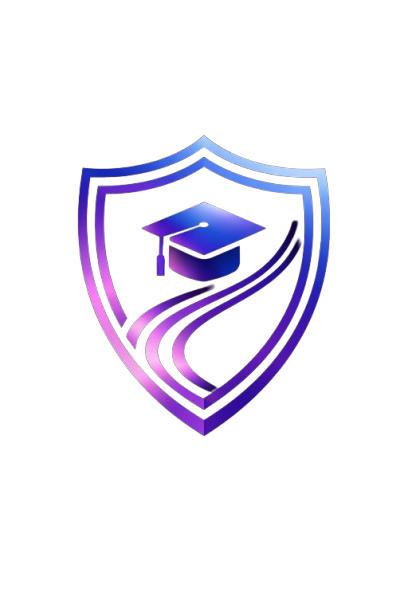Start Learning Tech Skills with no experience by beginning with simple digital concepts, building confidence slowly, and practising consistently. In today’s world, every industry depends on technology, and taking the first steps into tech can open doors to remote careers, entrepreneurship, and higher earning potential.
Many beginners worry they are not technical enough, but everyone starts somewhere, and even the most advanced developers began by learning basics. With the right guidance, structured practice, and access to free learning tools, you can grow from a complete beginner into a confident tech learner.

Breaking the learning journey into clear stages helps remove overwhelm, especially when you explore different topics before deciding on a long-term path. Instead of rushing, focus on understanding essential digital concepts, experimenting, and slowly strengthening your skills week by week.
Technology careers also encourage curiosity and problem-solving, meaning persistence and practice matter just as much as knowledge. By staying patient and committed, you can move from basic digital familiarity to meaningful skill development and hands-on experience in the tech world.
Start Learning Tech Skills: Why it Matters
Technology affects every profession, and people who start learning tech skills early build an advantage in future job markets. Businesses value employees who understand digital tools, automation, data, and online systems because they help organisations grow and operate efficiently.
This makes tech a secure and rewarding industry that continues to expand globally. When you start learning tech skills gradually, you build a foundation that supports long-term career growth.
Beginners who practise consistently will gain confidence and become comfortable with digital environments over time. Exploring the best tech skills to learn helps align your efforts with career opportunities that match your interests.
Setting Goals Before you Start Learning Tech Skills
Setting clear goals helps you decide what direction to follow, whether it is software development, IT support, UI/UX design, cybersecurity, or data. Having goals keeps your study routine structured and prevents you from jumping between topics without progress.
Think about why you want a tech career, whether it is remote work, financial freedom, creative problem-solving, or job stability. When you set a path before you start learning tech skills, you are more likely to stick with it and reach your targets.
Beginners often benefit from choosing one work-ready skill at a time such as web fundamentals or intro IT support. Exploring the best tech skills to learn through job boards and tech communities can guide you toward roles that interest you.
Building Foundations to Start Learning Tech Skills
Start with basic digital knowledge such as using devices, managing files, browsing securely, and understanding software tools. These fundamentals prepare your mind for deeper and more advanced concepts later in your learning journey.
It is also useful to practise productivity platforms, communication apps, and file-sharing systems since these skills support all tech roles. Developing strong computer tech skills at this stage helps you become comfortable with core digital tools.
As you progress, begin learning simple technical concepts like HTML, networks, or spreadsheets, depending on your chosen path. Over time, practising small tasks helps you strengthen your skills and start learning tech skills confidently.
Practice combining basic tasks such as writing small scripts, designing simple layouts, or building folders and virtual machines if necessary. Exploring tools that support learning tech skills makes your progress smoother and builds real-world confidence.
Beginner-Friendly Learning Paths
Choose beginner areas such as web development, UI/UX design, digital marketing, or IT support because they provide fast entry into tech. These paths allow you to grow quickly while discovering your strengths and interests.
Use free resources first, then move to structured courses once you understand the basics. Many online platforms help beginners explore the best tech skills to learn before committing to advanced training.
Get hands-on early by experimenting with small projects such as static web pages or simple mobile layouts. Practising these tasks reinforces your computer tech skills and improves learning quality.
Practising Through Projects and Challenges
Practical learning builds confidence faster than theory alone, so work on small challenges and gradually increase difficulty. Competitions, coding challenges, design samples, or troubleshooting exercises help you gain real-world insight.
Document every small achievement because these projects can later become part of your portfolio. Showing proof of you learning tech skills is one of the best ways to impress future employers or clients.
Join online communities or study groups where you can ask questions, share progress, and get feedback. Surrounding yourself with others who are also learning tech skills gives you motivation and guidance.
Participate in open-source projects or tutorials once you feel comfortable doing small tasks. Building visible results also increases your confidence and strengthens computer tech skills over time.
Staying Consistent and Building Long-Term Habits
The most successful tech learners stay consistent and practise regularly, even when lessons feel challenging. Consistency matters more than speed because learning tech skills is a long-term investment.
Track your progress, set milestones, and celebrate small achievements to avoid burnout. This mindset helps you stay motivated and focused on your goals over time.
Look for internships, freelance opportunities, or volunteer tech tasks once you feel ready. Real experience helps you apply what you learn and grow faster in the tech world.
Use community support, online mentors, and tutorials for guidance when you get stuck. Building habits that support growth ensures long-term success in your journey to develop computer tech skills and advance your career.
Educodes Upcoming Courses
View all of our upcoming courses below, also register for an account with us to be the first to know when our courses are releasing.
How do I start a career in tech with no experience?
You can start a career in tech with no experience by learning foundational computer and digital skills, choosing a beginner-friendly tech path such as IT support, web development, or UX design, and building small practical projects to showcase your abilities. Begin with free online courses, follow structured learning roadmaps, and practise consistently using hands-on tools and challenges. Create a simple portfolio, join tech communities for support, and apply for internships, volunteer tech roles, or entry-level freelance jobs to gain real-world experience. With discipline, curiosity, and gradual skill-building, you can break into tech even without a formal background.

